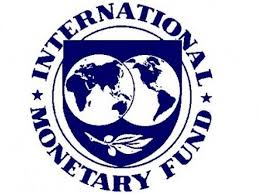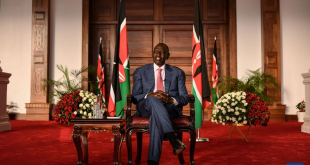Africa China Review Staff Writer

China’s growth will moderate to 8 percent, while the world economy is estimated to grow at 5.9 percent this year according to the International Monetary Fund (IMF) report. Although the uncertainty of the effects of COVID-19 pandemic still prevail, a global recovery is on the increase.
The IMF said China’s prospects for 2021 were marked down slightly due to a stronger-than-anticipated scaling back of public investment; the country’s growth in 2022 is estimated at 5.6, which is lower than IMF’s previous predictions.
The US economy is forecast to grow by 6 percent this year, 1 percentage point lower than the July prediction, but due to sizable anticipated further policy support, the US growth is expected to reach 5.2 percent next year.
“The downward revision for 2021 reflects a downgrade for advanced economies — in part due to supply disruptions — and for low-income developing countries, largely due to worsening pandemic dynamics,” the IMF said in its quarterly World Economic Outlook released recently.
The IMF predicted the global economy to grow at 4.9 percent in 2022, unchanged from the July forecast, but there exists a “dangerous divergence” in prospects across countries, according to Gopinath, who is the director of the IMF’s Research Department.
Aggregate output for the advanced economies is expected to regain its pre-pandemic trend in 2022 and exceed it by 0.9 percent in 2024, while that for the emerging market and developing economies, excluding China, is expected to remain 5.5 percent below the pre-pandemic forecast in 2024, resulting in a larger setback to improvements in their living standards.
On the issue of COVID-19 vaccine equity, Gopinathnotes that while more than 60 percent of the population in advanced economies is fully vaccinated, and some are now receiving booster shots, about 96 percent of the population in low-income countries remain unvaccinated.
The world should prioritize mass vaccination with a target to have 40 percent of the population in every country vaccinated by the end of 2021, and 70 percent by mid-2022.
In the latest World Economic Outlook, the IMF said there is an urgent need for vaccine donations by countries with large shares of their population already vaccinated, and it estimated that at least 1 billion doses could be shared by the end of 2021 without jeopardizing national vaccination targets.
“Recent pledges by China, the Group of Seven, and other countries in that direction are welcome steps, though donations should be accelerated to rapidly fulfill the commitments,” it said.
China will strive to provide a total of 2 billion doses of vaccines to the world by the end of this year, Chinese President Xi Jinping said in his statement delivered via video at the general debate of the 76th session of the United Nations General Assembly on Sept 21.
 Africa -China Review Africa -China Cooperation and Transformation
Africa -China Review Africa -China Cooperation and Transformation
